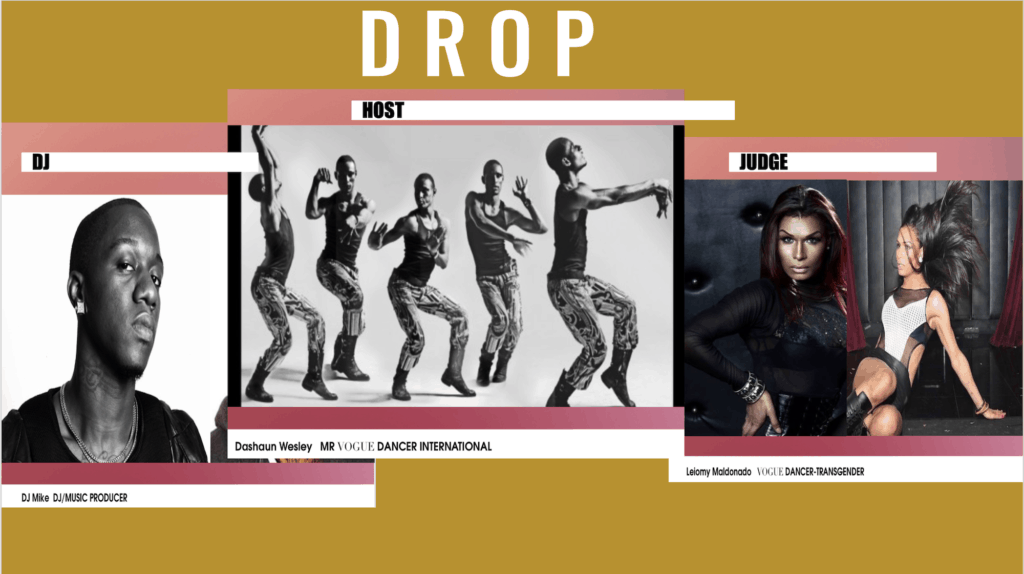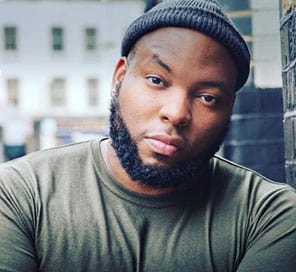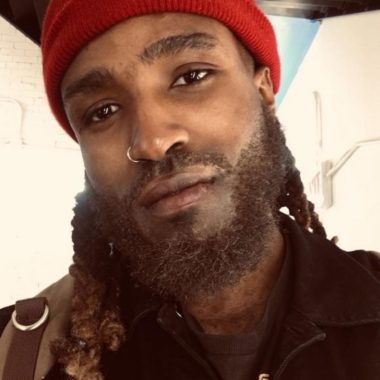Hollywood’s Counterfeit Culture
The theft of intellectual property and appropriation are common practices in the entertainment industry. Hollywood Svengalis wielding power over wide-eyed dreamers is a well-established part of entertainment culture and tolerated by many insiders. According to activist and film director Micheal Rice, HBOmax and its show producers have continued the practice with their alleged theft and consequent cover-up of its upcoming docuseries, Legendary — a Ballroom competition show.
Activist Micheal Rice, best known for his acclaimed film PartyBoi, a documentary about methamphetamine addiction in the Black and Latino queer community, claims ownership of his work.
As Rice told us in a phone interview the first week of May:
“I’ve been in this industry for well over a decade and I’m still learning. I dedicated my life to telling Black and Brown queer stories. When I created the show, it was originally called Drop. I pitched Drop to execs, but I was told there wasn’t room for another LGBTQ show with a Ballroom theme.
All of a sudden, I started seeing promo with the cast of Drop, same Ballroom series, the same roles, except now it was being called Legendary. Representation is just step one, black people also have the right to tell and control our own stories, they shouldn’t be stolen.”

Ballroom’s Legacy vs HBO Max – Legendary
Ballroom is comprised of ‘underground’ queer Black and Latino dance and beauty competitions. Most importantly, Ballroom consists of networks of chosen families (houses) — mostly queer people of color, many of whom have been displaced or disowned by blood relatives. In recent years, Ballroom culture has become more visible and centered in shows like FX’s Emmy nominated, Pose. However, Ballroom’s roots begin in 1920s Harlem, and although often unrecognized and unacknowledged, its influence can be seen throughout pop culture — Madonna’s 90’s hit song, “Vogue.”
From Hollywood, law enforcement to social media, there is no escaping the eye of systemic racism — unfortunate stories that seem to loop indefinitely.
Established, Emmy winning producers, unfortunately, lead in the erasure of the less established queer black creator. Rice’s assertions only add to the mounting controversies surrounding HBOmax’s Legendary.
Legendary’s Issues

In February of this year, swift backlash from the LGBTQ community came when British actress Jameela Jamil was announced as the show’s chosen MC and judge — both roles regarded as ‘key’ in the Ballroom community. Jameela, though, has no prior affiliation with Ballroom.
Upon reaching out to HBO, Rice and his agent were directed to Scout Productions, owned by David Collins and Michael Williams. Rice was then pointed to another company, Cold Weather Productions LLC. According to Rice’s agent, Cold Weather and their attorney stated that all similarities in casting were coincidences, due to the scarcity of Ballroom household names. Interestingly, it appears Cold Weather is also owned by Collins and Williams, and was founded in late November 2019.
Rice explained: “I think the assumption is that black creators like myself are too poor, or stupid to defend ourselves. I’m not going to let anyone steal from my community and parade it as authentic. I’ll defend myself and anyone else that is being abused by this system and people like them.”
Registering a company as an LLC (limited liability corporation) is a common way owners protect themselves from personal liability. As of May 14th, 2020, Cold Weather Productions LLC has no website and is uncredited in any publication for Legendary.
Stealing The Culture
Legendary currently features Pop Star Megan Thee Stallion as a celebrity judge. Rice states he had initially suggested singer Teyana Taylor instead, due to her voguing background.
“I love Megan Thee Stallion and her positivity, she’s my fellow Texan. I wish the best for everyone, but this fight is about making sure black artists especially get protection from predators and culture vultures,” said Rice.
In the entertainment industry, privileged and powerful businessmen and women regularly appropriate Black culture, generating more wealth for themselves and systems that abuse people of color.
If the allegations are true, not only would the theft of Rice’s work be irreverent and audacious, but with any success of Legendary, one might imagine the self-serving award acceptance speeches and interviews about, ‘creating’ opportunities for people of color and diversity. Neither Collins nor Williams has made official statements about any of the aforementioned controversies. We reached out to HBO, who as of press time did not respond to questions. Rice is currently seeking legal counsel.
Roderick Thomas is an NYC based writer, filmmaker, and Host of Hippie By Accident Podcast. (Instagram: @Hippiebyaccident, Email: roderick@redhookstar.com, Site: roderickthomas.net











One Comment
I’m glad someone is finally calling it out. This show was supposed to be first on bravo I believe but they didn’t pick it up then hbo did but the also dropped someone who has been part of ballroom for over 15 years. Leyomi is the first one to scream ballroom appropriation when someone else gets ahead but when she’s involved in it she’s is all gun ho all she cares about is getting her name out there at any cost. She’s not humble or kind. She will block you just for having your own opinion. She will drag your name through the mud and slander your name. With this attitude I hope someone sues her for Deformation of character.